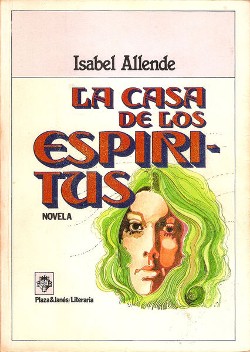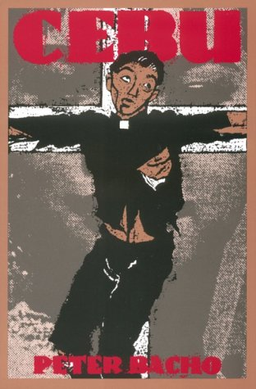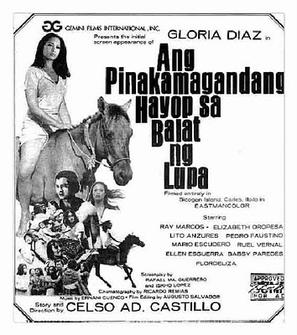
María Isabel Preysler Arrastía is a Spanish-Filipina socialite and television host. She is the mother of singers Enrique Iglesias and Julio Iglesias Jr., journalist Chábeli Iglesias, Tamara Falcó, 6th Marchioness of Griñón, and Ana Boyer Preysler.
Lois-Ann Yamanaka is an American poet and novelist from Hawaiʻi. Many of her literary works are written in Hawaiian Pidgin, and some of her writing has dealt with controversial ethnic issues. In particular, her works confront themes of Asian American families and the local culture of Hawaiʻi.

Jessica Tarahata Hagedorn is an American playwright, writer, poet, and multimedia performance artist.

The House of the Spirits is the debut novel of Isabel Allende. The novel was rejected by several Spanish-language publishers before being published in Barcelona in 1982. It became an instant best-seller, was critically acclaimed, and catapulted Allende to literary stardom. The novel was named Best Novel of the Year in Chile in 1982, and Allende received the country's Panorama Literario award. The House of the Spirits has been translated into over 20 languages.

Lolita is a 1962 black comedy-psychological drama film directed by Stanley Kubrick, based on the 1955 novel of the same name by Vladimir Nabokov.

Sheryn Mae Poncardas Regis is a Filipino singer and songwriter. She rose to fame after finishing first runner-up in the television talent show Star in a Million in 2003. Dubbed as the "Crystal Voice of Asia," she is best known for singing the theme songs for several hit television series on ABS-CBN including Marina (2004), Krystala (2005), and Kampanerang Kuba (2005).

Maria Socorro "Kuh" Hashim Ledesma is a Filipino singer and actress. Regarded as “OPM'sPop Chanteuse”, she is noted for her "masterful" and "rich distinct vocal style."

Geraldyn "Dina" Schaer Bonnevie-Savellano is a Filipino actress. She is recognized as the industry's "Drama Queen" of her generation. She has won 2 FAMAS Awards, 2 Luna Awards and multiple 'Best Actress' wins and nominations across all leading award-giving bodies in the country.

Amy Elizabeth Fisher is an American woman, who, in 1992, at the age of 17, shot and severely wounded Mary Jo Buttafuoco, the wife of Joey Buttafuoco, who had initiated a sexual relationship with the underaged Fisher in 1990. Initially charged with first-degree attempted murder, she eventually pleaded guilty to first-degree aggravated assault and served seven years in prison. Due to her age and her affair with a much older man, she became known in the tabloid media as "the Long Island Lolita". Fisher was paroled in 1999 and became a writer, a webcam model, and a pornographic actress.

Cebu is a 1991 novel by Filipino American author Peter Bacho the "most visible figure" of second-generation, native-born Filipino American writing and one of several Seattle novelists in the 1990s to explore the racial history and sociology of Seattle. The novel is also "the first novel about a Filipino American who identifies primarily with US localities," rather than with the Philippines.
Iskul Bukol is a Philippine television sitcom series broadcast by IBC. Directed by Bert de Leon, it stars Tito Sotto, Vic Sotto, Joey de Leon, Mely Tagasa, Bing Angeles, Anthony Raquel, Dely Atay-Atayan, Sharon Cuneta, Bibeth Orteza, Richie Reyes, Mary Massab, Joey Albert, Kaye Torres, Redford White, Jimmy Santos, Ariel Villasanta and Rod Navarro. It aired from October 3, 1978 to 1988. The show centered around student life in the fictional Wanbol University.

Lolita is a 1955 novel written by Russian-American novelist Vladimir Nabokov that addresses the controversial subject of hebephilia. The protagonist is a French literature professor who moves to New England and writes under the pseudonym Humbert Humbert. He describes his obsession with a 12-year-old "nymphet", Dolores Haze, whom he kidnaps and sexually abuses after becoming her stepfather. Privately, he calls her "Lolita", the Spanish diminutive for Dolores. The novel was originally written in English, but fear of censorship in the U.S. and Britain led to it being first published in Paris, France, in 1955 by Olympia Press.

Kambal sa Uma is a 2009 Philippine television drama fantasy series broadcast by ABS-CBN. The series based of a 1979 Philippine film of the same title. Directed by Manny Q. Palo and Rechie A. del Carmen, it stars Melissa Ricks, Shaina Magdayao, Matt Evans, Jason Abalos and Gina Alajar. It aired on the network's Hapontastic line up and worldwide on TFC from April 20 to October 9, 2009, replacing Parekoy and was replaced by Nagsimula sa Puso. Throughout its run, Kambal sa Uma was a top-rating afternoon drama television series.

Blu's Hanging is a 1997 coming-of-age novel by Lois-Ann Yamanaka. It follows the Ogata family after the death of their mother, as each family member struggles to come to terms with their grief. The story is told through Ivah, a smart-mouthed thirteen-year-old who is left as the oldest child to take care of her younger siblings, Blu and Maisie, while she struggles with her own grief, emerging sexuality, and awareness of the world. Similar to Yamanaka's other works, Blu's Hanging, encompasses the topics of racial politics and the diverse culture of Hawaii, as well as the coming of age of the main character amongst various sexual threats and questions.

The Gangster of Love is a novel written by Jessica Hagedorn and published by Houghton Mifflin in 1996.

Ang Pinakamagandang Hayop sa Balat ng Lupa is a 1974 Tagalog-language film from the Philippines. The story was written by Celso Ad. Castillo and screenplay written by Rafael Ma. Guerrero. The film stars Filipino actors Gloria Diaz, Vic Vargas, and Elizabeth Oropesa. The film was produced by Gemini Films International and was shot in Sicogon Island of Carles, Iloilo in the Western Visayas region of the Philippines.

Maria Isabel Pagunsan Lopez—Melrod is a Filipino actress and beauty pageant titleholder. Lopez won the Binibining Pilipinas Universe 1982 and represented the Philippines in the 31st Miss Universe Pageant in Lima, Peru.
Filipino American theater ranges from topics such as Filipino/Filipino-American history to modern Filipino issues. The themes for these works were mostly influenced by the Spanish colonial rule as well as the American colonization.

Gina Lourdes Delgado Apostol is a Filipino-born writer based in the United States. She won the 2023 Rome Prize in Literature for her proposed novel, The Treatment of Paz.

I Hotel is a 2010 novel by Japanese American writer Karen Tei Yamashita, published by Coffee House Press. A novel about Asian American movements in the seventies, it is named after the International Hotel, a historic residential hotel in San Francisco that housed predominantly Filipino Americans in the 20th century, which is the setting for several of the book's sections. The book won several awards, including an American Book Award. It was reissued by Coffee House Press for its tenth anniversary in 2019, featuring an introduction by Jessica Hagedorn.
















